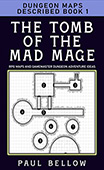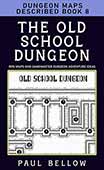Immerse yourself in the thriving world of fantasy and adventure as we delve into the realm of rumors and whispers. As any seasoned Dungeons & Dragons player knows, rumors can be a game master’s best friend – they offer intriguing plot hooks, intricate web of lies, and the element of mystery that keeps players coming back for more. Whether used as red herrings, sources of inspiration, or the seeds of epic quests, the art of rumor-crafting can heighten suspense and deepen your campaign world’s rich narrative tapestry.
For a D&D character, rumors are more than just idle chatter – they are an integral part of the world-building process, adding texture to the narrative and driving character motivations. They provide tantalizing leads, shape characters’ perceptions of other characters, and may even inform their actions. For the ambitious rogue, a whispered secret might lead to the discovery of hidden treasure. For the curious wizard, a hushed tale could unlock the path to forbidden knowledge.
Check out my *advanced* RPG AI Tools [GLOWING]
However, generating compelling and game-enhancing rumors isn’t always a straightforward task. How do you concoct a rumor that is believable, intriguing, and directly relevant to your characters and campaign? How do you ensure that your rumor will stir the curiosity of your players and entice them to investigate further?
Worry not, for in this article, we will provide you with a treasure trove of captivating rumors and some advice on how to craft your own. So, strap on your storytelling boots, and let’s venture into the clandestine world of D&D rumor-weaving.
The Role of Rumors in D&D
Rumors are an underappreciated element in the arsenal of any Dungeon Master. They serve as sparks that can ignite intriguing storylines, enrich the texture of your game world, and create dynamic interactions among characters. A well-crafted rumor can pique players’ curiosity, compel them to action, or introduce a twist in their journey, all while enhancing the immersive quality of the gameplay.
A whisper about a haunted mansion might drive your adventurers to investigate, leading them on a ghostly side quest. A circulating tale of a coveted treasure could trigger a thrilling race against rival seekers. Gossip about the king’s questionable health might plunge the kingdom into a power struggle, with the party finding themselves in the thick of the intrigue. Rumors, therefore, can serve as catalysts for adventure, plot progression tools, and a way to inject complexity into the campaign.
Rumors also add depth and dynamism to the game world. They reflect the beliefs, fears, and desires of the NPCs, painting a vivid picture of the society’s pulse. Furthermore, they offer an avenue for the DM to hint at larger world events beyond the immediate focus of the party, creating a sense of a living, breathing universe.
Types of Rumors
Not all rumors are created equal, and understanding the different types can help you deploy them effectively in your campaign. First up, we have local folklore. These are tales passed down through generations, often intertwined with superstition and tradition. Think legends of ghosts that haunt the local well or mythical beasts said to dwell in the nearby forest. These rumors can provide a rich cultural backdrop to your locations and offer exciting exploration possibilities.
Next, we have prophecies. These are future-oriented rumors and can be incredibly tantalizing to players. Predictions of an imminent invasion, a destined hero, or an approaching cataclysmic event can drive the main narrative or add an extra layer of urgency and mystery to your campaign.
Then there are secret plots. Rumors of conspiracy, betrayal, or impending rebellion. These whispers are particularly effective for intrigue or politics-focused campaigns, providing a foundation for complex narratives involving subterfuge and deception.
Finally, character-related whispers are rumors directly tied to player characters or significant NPCs. They can relate to their past, their deeds (real or fabricated), or their destiny. These rumors can be powerful tools to advance character arcs, pull players deeper into the narrative, and make their actions feel consequential within the game world.
Crafting Believable Rumors
Creating a rumor that feels authentic and compelling is part art and part science. The first step is understanding the source of the rumor. Is it common folk sharing tales over a pint in the local tavern, a conniving courtier spreading disinformation, or an ancient prophecy inscribed in a forgotten text? The source influences the tone, complexity, and credibility of the rumor.
Remember, rumors don’t have to be entirely true or false. Some of the best ones contain a mix of fact and fiction. Maybe the legendary beast said to lurk in the forest does exist, but its nature and the threat it poses are greatly exaggerated. Or perhaps the rumored rebellion is real, but it’s being pinned on the wrong faction to mislead the authorities. Giving players the task of untangling truth from falsehood makes for engaging gameplay.
Next, consider the purpose of the rumor in your narrative. Is it meant to foreshadow a major plot development, lure the party into a trap, or test their ability to sift through deception? Maybe it’s just there to add color to a location or character. The purpose will guide how you introduce and evolve the rumor in the campaign.
Finally, the best rumors are those that inspire action. They should present the players with interesting choices or opportunities. Whether it’s deciding whether to chase after the rumored treasure, determining how to respond to whispers about one of their deeds, or choosing to investigate the eerie happenings at the town’s outskirts, the rumors should impel the characters to engage more deeply with the world.
Integrating Rumors into Your Campaign
Successfully integrating rumors into your D&D campaign requires careful planning and execution. Here are a few strategies to make the most of them.
First, introduce rumors organically. They can come up in casual conversation with NPCs, be overheard in a bustling marketplace, or be found in old letters or diary entries. Forcing a rumor onto the players might feel contrived and lessen its impact.
Remember to spread rumors through appropriate channels. A lowly street urchin isn’t likely to be privy to courtly conspiracies (unless they are an unusually well-connected urchin!). Similarly, a noble might be oblivious to the gossip circulating among the town’s common folk.
Consider the timing of introducing a rumor. Dropping a rumor about a hidden dungeon filled with riches might not do much if the players are already knee-deep in quests. But introduce it when they have just completed a task and are looking for their next adventure, and you have their attention.
Finally, follow through on rumors. If a rumor hints at something that can be discovered or verified, let the players find that out through their actions. Following a rumor should lead to consequences – rewarding, damaging, or simply illuminating, but there should be a payoff to make the rumor worthwhile. This doesn’t mean that every rumor needs to lead to a grand revelation or epic quest. Sometimes, the rumor might just be that – a rumor. But the process of investigation can still provide meaningful character interactions and world-building opportunities.
Rumors Powered by AI: LitRPG Adventures Workshop
In the ever-evolving world of tabletop RPGs, Dungeon Masters are always seeking new tools to enrich their narratives. One such tool making waves is the LitRPG Adventures Workshop by Paul Bellow. This advanced set of over three dozen tabletop RPG tools, powered by GPT-4 and DALLE2, is a game-changer for generating unique and engaging content, including DND character rumors.
The rumor generator at LitRPG Adventures is an excellent resource for DMs. Not only can it generate a wealth of diverse rumors to sprinkle into your campaign, but the AI also allows for customization according to your specific campaign setting. Whether you need a rumor about a shadowy thief in a bustling city or a legendary beast in a forgotten forest, this tool can deliver.
Moreover, the AI’s creativity often results in rumors that DMs might not have thought of, bringing unexpected twists and turns to the narrative. This can be especially valuable in long-running campaigns, where it can be challenging to keep coming up with fresh plot elements.
But the rumor generator is just one of the many tools available in the LitRPG Adventures Workshop. From backstories to magic items to NPC dialogues, this platform is packed with resources that can help enhance any campaign, taking much of the prep work off your shoulders and allowing you to focus more on the fun part – playing the game.
As Dungeon Masters, our goal is to create a captivating and immersive experience for our players. Rumors, whispers, and tales are a small but potent part of that. They can breathe life into our world, build suspense, and lure players into unforgettable adventures. With the help of AI-powered tools like LitRPG Adventures, creating and integrating these elements into our game has never been easier or more exciting. So the next time you’re looking to add some intrigue to your DND campaign, why not start a rumor?
Check out my *advanced* RPG AI Tools [GLOWING]





